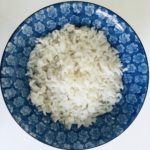I wrote an article a while ago about the connection between gluten and sleep disturbance, including restless leg syndrome. A new study published this month in the medical journal Sleep Medicine confirms the connection between restless leg syndrome and celiac disease.
What is restless leg syndrome?
Here is an explanation from the RLS Foundation:
“Restless legs syndrome (RLS) is a neurological condition that is characterized by the irresistible urge to move the legs. While the name may sound funny, it is a very real disorder. In order for you to be officially diagnosed with RLS, you must meet the criteria described in the four bullets below:
- You have a strong urge to move your legs which you may not be able to resist. The need to move is often accompanied by uncomfortable sensations. Some words used to describe these sensations include: creeping, itching, pulling, creepy-crawly, tugging, or gnawing.
- Your RLS symptoms start or become worse when you are resting. The longer you are resting, the greater the chance the symptoms will occur and the more severe they are likely to be.
- Your RLS symptoms get better when you move your legs. The relief can be complete or only partial but generally starts very soon after starting an activity. Relief persists as long as the motor activity continues.
- Your RLS symptoms are worse in the evening especially when you are lying down. Activities that bother you at night do not bother you during the day.
RLS can also cause difficulty in falling or staying asleep which can be one of the chief complaints of the syndrome. A substantial number of people who have RLS also have periodic limb movements of sleep (PLMS). These are jerks that occur every 20 to 30 seconds on and off throughout the night. This can cause partial awakenings that disrupt sleep. Sleep deprivation can seriously impact your work, relationships, and health.”
What is the connection between restless leg syndrome and celiac disease?
Celiac disease can cause iron deficiency, and iron deficiency can cause restless leg syndrome.
In the journal study, people with restless leg syndrome had iron deficiency caused by celiac disease. There were only 4 cases in the study but all 4 reported that the symptoms of restless leg syndrome improved on a gluten-free diet. Many people with restless leg syndrome are given medication to treat it, but it is clear that gluten could be the cause and that celiac testing and a gluten-free diet should be the first course of action.
Here is the abstract of the study:
Celiac disease as a possible cause for low serum ferritin in patients with restless legs syndrome
Objective:
To describe celiac disease (CD) as a possible cause for low serum ferritin in patients with restless legs syndrome (RLS).
Background:
Low iron stores have been found to be a risk factor for RLS with serum ferritin levels less than 45–50 ng/mL associated with increased severity of RLS. It has become routine clinical practice to test serum ferritin in the initial assessment of RLS. CD is a common genetic disorder that can cause iron deficiency.
Methods:
Consecutive case series of four patients with RLS and serum ferritin below 25Â ng/mL, who had positive screening tests for celiac disease.
Results:
We report four patients who had serum ferritin <12Â ng/mL and positive screening tests for CD. All had CD confirmed by duodenal biopsy and response to a gluten-free diet. RLS symptoms improved in all four, with two able to discontinue RLS medication and two responding without medication.
Conclusions:
In patients with RLS and low serum ferritin who do not have an obvious cause for iron deficiency, we suggest looking for CD by simple, inexpensive serologic testing. Diagnosis and treatment of CD is likely to improve the outcome for RLS, as well as identify individuals who are at risk for the significant long-term complications of CD.







Jennifer says
RLS can also be caused by a plethora of other mineral deficiencies (e.g., copper or magnesium). Such deficiencies result either from nutrient-poor diets or from eating with food intolerances (besides celiac disease). Food intolerances in general have a way of inhibiting mineral uptake in the gut.
Ali (Whole Life Nutrition) says
Alison –
I just came across your blog, I hadn’t seen it before. This is a great article you have here on RLS and gluten-sensitivity, very well-put. I am going to add a link to your blog to our site.
Thanks, Ali Segersten
Andy Bunch says
Is there any more definitive or tangential evidence connecting RLS and a gluten free diet?? I have had RLS for many years and am very interested in pursuing this trac if you have anything for review.
Thanks,
Andy Bunch
Old Fort, NC
Rithika says
I totally agree with this. I have had RLS for quite some time (about 7 years) on and off. When it was on, it was terrible. If I am off gluten, I am totally off of RLS..Totally, no indication of the syndrome whatsoever. Two slices of bread is all it takes to bring it back. I am awake all night. I wish I had made this connection before my two pregnancies.
Rhonda says
I have been diagnosed with CD for almost 3 years. I have now been diagnosed with Advanced Restless Leg Syndrome. I have been on medication for peripheral neuropathy for about a year, that medication is no longer working as well. My neurologist just put me on Requip. I always thought RLS was a name they gave to something that they had no medical reasoning for, kind of like fibromyalgia. Boy have I been wrong. I have been doing research on RLS, like having CD isn’t challenging enough. Now add CD with RLS.
Shelley says
I have been doing some research as I am allergic to wheat and dairy. I drink coffee and have been using non dairy creamer and have found that my bowel movements have been much more normal. I also have a problem with restless legs sydrome, which I’ve had since a child. Now I am itchy all the time from the back of my hairline to my legs, feet, hands, throat etc. I haven’t been tested for celiac disease but I have seen a lot of similarities. I really am uncomfortable. Could this be celiac disease?
Stephanie Dwyer says
This my kid! My poor child suffered from terrible fits, irritabilty, until we tested a ferritin level. It came back an 11! Just got him diagnosed w/ bloodwork and biopsy, he has 100% celiac. Interesting connection, and the dr.’s don’t seem to make any correlation with the ferritin level and celiac? Dumbfounding to me, I obviously see the correlation. He is 5 and on prescription iron twice a day. Wondering how long will he need that in order to improve?
alison says
Stephanie,
You should be careful with the iron supplements. I had very low iron before starting a gluten-free diet. With no iron supplements at all, my iron tested HIGH after 3 months on a gluten-free diet. Imagine if I had been still taking iron supplements also. Talk to your doctor about this right away. Your son has not been absorbing iron, but will once he starts healing.
Stephanie Dwyer says
thanks for emailing me your response, appreciate the info. He actually does see a Dr. of sleep medicine who oversees his iron supplement and regulates it for him. She has been great and very helpful. He is hitting a growth spurt since just starting the diet, and it’s difficult to absorb the iron right now due to his body catching up on so many nutrients. She will redraw another blood level soon to ensure it’s not too high, I have read the dangers of too much iron, as well. Thanks for your info!
Bonnie Crego says
I was diagnosed with Celiac and went GF 2 years ago. At least I thought I was GF. Oatmeal has been a grain that supposedly is safe for Celiacs but recent findings are showing that the protein in Oats can also cause possible intolerance in some Celiacs. Sure enough, when I finally gave up Oatmeal, everything else got so much better.. including my rather severe RLS..! It’s totally gone without the Oatmeal. Take note, those of you that still have RLS and think you are GF. Try kicking the Oatmeal habit and see if in a couple weeks it has helped.
Alison says
Bonnie,
Were you eating regular commercial oats? Oats are so contaminated with wheat that they are not considered gluten-free. But there are several brands out there now of uncontaminated oats and are considered safe for those that need to be gluten-free. There are people who cannot tolerate oats either, but I just want to make this clarification.
Betty says
Stephanie: My serum ferritin level was at 3!!! My has me taking vitamin C along with the iron. Vitamin C aids in the absorption of iron.
Leena says
I have several food intolerances. A year ago I tried an elimination diet ridding my body of dairy to remove the RLS. I was 98% better with some urges at times in my legs and my body still feels tired and creepy crawlers. A year my RLS started acting up more. I started a candidia diet to rid my body of yeast and possible fungi and noticed that when I ate eggs my RLS would act up. Now I am wondering if I remove gluten from my diet would this help my overall immune system???? I am 33 years old and have been with RLS for 13 years now and still working hard to figure this all out. Oh, I also have Fibro-M. I want to start to take supplements but now sure what works…any suggestions? Any feedback on leaky guts and if I eliminate gluten, dairy, eggs is this a life commitment?
Alison says
If I were you I would absolutely remove gluten — it is inflammatory and is known to cause RLS, and fibromyalgia symptoms. If you eliminate the gluten and heal (consult someone regarding probiotics, enzymes and other gut healing solutions), you might be able to tolerate other foods.
JoAnne says
I’ve had mild restless legs for the past few years. I started loosely following a gluten free diet and also attempted an elimination diet that seemed to indicate sensitivity to just about everything. The restless legs became MUCH worse after the elimination diet. I then had food allergy and sensitivity blood testing completed and the results show serious allergy to gluten, milk, eggs, almonds and pineapple. There were also numerous “moderate” allergies. I’ve eliminated the serious allergens and began a rotation diet. My restless legs resolved almost immediately. If I have restless legs I am able to point to something I ate that day. I think the symptoms initially became worse because my immune system started to recover with the gluten free and elimination diet.
Alison says
Hi JoAnne,
Thanks for telling your story. Glad to hear that your restless legs have improved!
Dr. Reese says
As a child in the 1970s, I was hospitalized for a workup due to short stature, headaches & stomach pains. Nothing came of it, so I was put on cadaveric human growth hormone for several months, to no effect.
At 20 I developed severe RLS, which went undiagnosed for 14 years before I made the diagnosis. Drug therapy initially made for a tremendous improvement, though over time the RLS worsened, eventually becoming unbearable.
At 45 I was a near-invalid, barely getting any sleep at night and feeling cold & sluggish during the day. My hematocrit was down by 7 points from baseline. I ran 2 miles one day, slowly, and for the next several days felt as sore as a 95-year-old man who had just raced a marathon.
I reluctantly tried a gluten-free diet (blood tests: 2 were negative; one was borderline). The first gluten-free day I felt great. On the second day I felt better and ran 2 miles at a good pace. The next day I ran 4 miles; the day after that 5 miles. No soreness whatsoever.
After 2 weeks my RLS was gone completely, though it does return with a vengeance if any gluten slips into my diet (which it did tonight; thus my posting at this hour). My headaches have resolved as well–not one in the last 10 months of gluten-free adherence. My hematocrit has gone up several points.
Now I’m just trying to figure out what nutrients / micronutrients my body is deficient in, given 45 years of untreated celiac disease.
Joanne says
In August of this past summer (2012) I went to bed and my thumb on my left hand started twitching uncontrollably. I do a lot of weight training and had injured my hand that day at the gym, lifting a heavy weight. I assumed the twitching had something to do with that. Over the next three days, the thumb twitching continued and around night 2 (possibly 3), my legs started to jolt as soon as I lay down. The thumb twitching has stopped, but my legs have been a problem ever since. I have also had chest “jolts” as well as flailing of my arms when I am either trying to sleep or in my sleep (I’ve been woken up as a result of my hand hitting the headboard of my bed). Needless to say, this has all been extremely upsetting! I am exhausted, and the sluggish, heavy, prickly feeling in my legs makes gym time (I work out a lot- cardio and weights) difficult at times. I have found all of your posts extremely informative, so thank you for taking the time to share. What has been frustrating to me is my doctor’s lack of knowledge on the subject of RLS. As I have been doing my own research (The Restless Leg Syndrome Foundation Website is excellent as is the Mayo Clinic Website) I am discovering valuable insights into RLS. I was diagnosed with Irritable Bowel Syndrome years ago after a Celiac blood test came back negative. My father has Celiac Disease, so I suspect I am somewhere between intolerance and actual CD. After reading The Wheat Belly, especially the chapter about the effects of wheat on the brain (Cerebellum Ataxia sounds a lot like RLS to me) I cut out wheat/gluten altogether (about a month before my RLS symptoms even began). I continue to be gluten-free (about 6 months now) but still my RLS symptoms persist. Here are a few things that I have learned about my own condition; perhaps they will help someone else. First, taking magnesium glycinate immediately before I go to bed seems to help (see recommended dosage). Also, alcohol is a huge trigger for me. As much as I love a glass of red wine on a Friday evening (I’m a teacher:) I’ve had to cut out all alcohol (the jolts and twitches are far worse for at least 2 days after alcohol consumption). When I engage in moderate leg exercises, my legs feel better; when I “go hard” at the gym, they feel worse! Finally, the one thing that really seems to help is elevating my legs (propped up on pillows) when I’m in bed. I’ve always had low iron stores (I’ve even been turned away for low iron levels when I’ve tried to donate blood) so I am going to be diligent about taking iron (with orange juice and at night for better absorption). Hopefully that will help. I’m really interested in knowing if anyone else out there has tried yoga, especially hot yoga, to try to alleviate their symptoms? I find with my legs, it’s not so much that I have to move them to make them feel better, rather it’s more of an overwhelming desire to stretch! I’m still in the “discovery” process with my RLS, so any insights, comments, responses would be appreciated. On one final note, the RLS Foundation Website has listed as a “possible” cause of RLS, “nerve damage to either the hands or feet.” I have often wondered if that injury to my hand in the summer somehow started all this? I know it sounds crazy, but I just can’t imagine why this would start so suddenly?? Has anyone else had a similar experience?
Thanks!